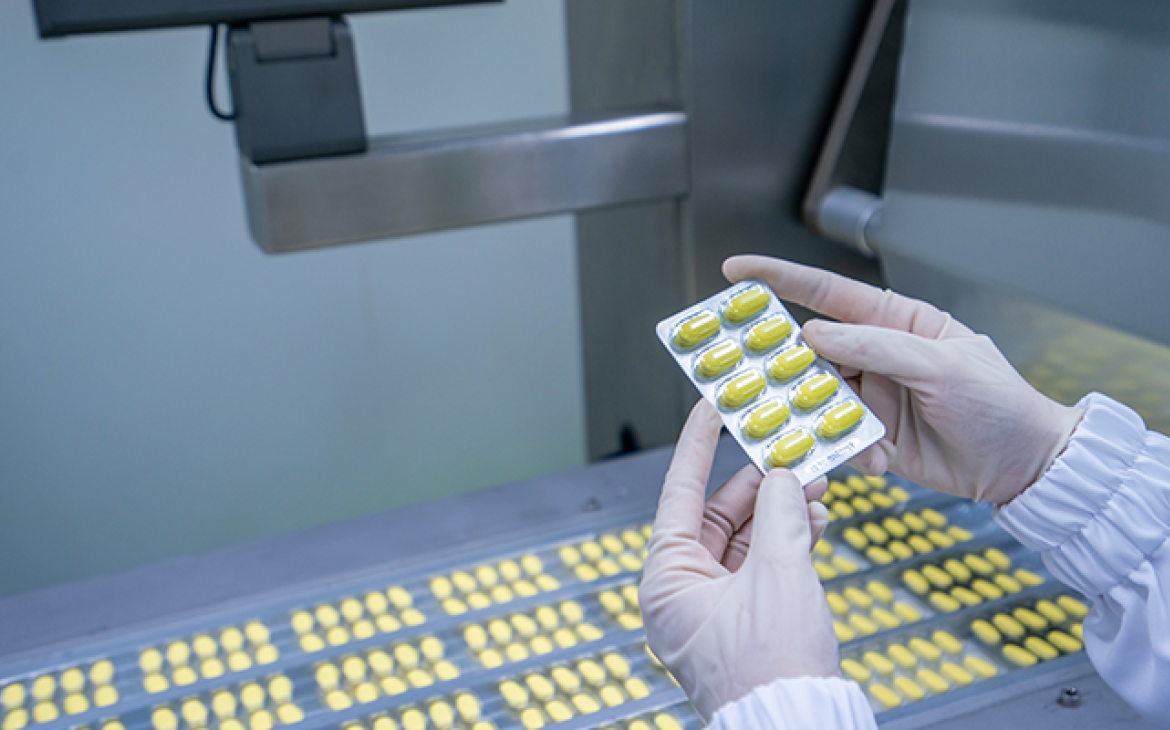By the year 2020, biopharmaceuticals are estimated to account for 50% of the most successful pharmaceutical products. (1)(2) Biologics, such as recombinant therapeutic proteins, vaccines, blood components, and regenerative medicines are growing faster than any other segment of medicines. The transition from chemically synthesized small molecule drugs to biologically-based, large molecule medicines produced through living expression systems has required the pharmaceutical industry to rethink its approach to quality control and develop novel strategies for ensuring the safety and quality of medicines.
Reference standards help ensure quality medicines
Publicly available reference standards reduce the time and resources manufacturers need to invest in developing in-house standards and can help facilitate compliance with regulatory requirements. For small molecule drugs, public quality standards have long been used by the pharmaceutical industry for analytical testing to confirm the quality, purity and potency of active pharmaceutical ingredients as well as excipients used in drug products. As the pharmaceutical industry has shifted from predominantly small molecule drugs to large molecule biotherapeutics, quality standards have also evolved to meet newly emerging needs.
Performance standards for quality biologics
Broadly applicable across a drug family or therapeutic product class, performance standards support analytical testing of biologics from product development to release. They can address common quality issues and challenges that are inherent to technologies that cut across multiple substances and companies. Performance standards are used by biopharmaceutical manufacturers to help ensure and demonstrate method and process performance.
Convening biopharmaceutical stakeholders
Manufacturers, regulatory agencies and other stakeholders share a common goal of bringing safe, effective, high-quality biopharmaceuticals to patients as quickly and efficiently as possible. Opportunities for these groups to meet and discuss biopharmaceutical development and production can help foster a common understanding of the many facets of the industry which can, in turn, facilitate progress.
This past fall, experts from five biologics manufacturers and the FDA met at the USP Headquarters in Rockville, Maryland to share their perspectives on how performance standards could help them monitor the quality of recombinant proteins, including monoclonal antibodies. The full day roundtable was organized by USP, in partnership with BIO (Biotechnology Innovation Organization), to discuss potential standards for impurities (e.g., host cell proteins), adventitious agents (e.g., mycoplasma), raw materials used for conjugation (e.g., polyethylene glycol or linkers used in antibody drug conjugates), or in production or purification (e.g., protein A and serum). The group prioritized proposed ideas and discussed ways that USP could work with industry to develop these new performance standards. Ideas were also generated on how to define technical requirements and acquire physical materials for standards.
More information on the topics discussed during the roundtable is available in the Executive Summary. This was one of a series of meetings that USP will convene to help further define the needs and priorities of biologics standards development. The next industry roundtable on performance standards will be in Vienna, Austria on May 31, 2018. To learn about participating in future roundtable meetings, please contact USP at Biotech@usp.org.
Conclusion
The continued development of biopharmaceuticals gives new hope to patients and healthcare providers alike. This rapidly evolving industry is technologically complex and has required innovative approaches to ensuring quality across the product lifecycle, from R&D to manufacturing and distribution. As new drugs enter the marketplace and new technology changes the way medicines are made, it is imperative that experts in science and public health engage with standards setting organizations to identify priorities that will keep standards current and help enable manufacturing of quality medicines.
(1) M. Kornecki, et. al. Host Cell Proteins in Biologics Manufacturing: The Good, the Bad, and the Ugly Antibodies 2017, 6, 13.
(2) EvaluatePharma. World Preview 2016, Outlook to 2022; EvaluatePharma: London, UK, 2016; pp. 1-39.


